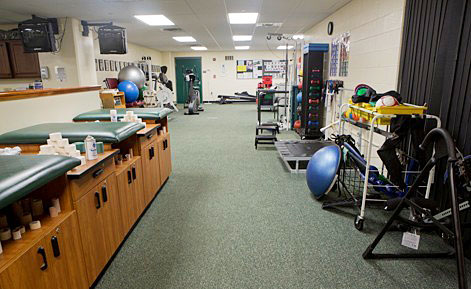
Stimulants, anabolic agents, diuretics, street drugs, peptide hormones, anti-estrogens, beta-2 antagonists … the list of the NCAA’s banned substances reads more like a chemistry textbook than a policy that can be easily comprehended by a busy college athlete. In order to help athletes understand both the NCAA’s regulations regarding banned substances and the dangers of drug abuse, the Binghamton University Athletics Department has instituted a number of programs and policies centered around athlete education.
The instruction of student-athletes regarding the NCAA’s policies starts prior to the first time they step foot on the court, field or track for Binghamton.
“My first experience of learning about the NCAA’s policies at Binghamton was in the beginning of my freshman year when we had an NCAA compliance meeting,” Aziza Hawthorne, a junior track and field sprinter, wrote in an email. “We had to sign a bunch of papers agreeing to follow NCAA rules and regulations.”
The education of student-athletes regarding these policies, however, is not a one-time occurrence. Pamphlets listing the NCAA’s banned substances can be found outside the athletic training room in the Events Center and BU’s sports medicine staff serves as the main resource for athletes with concerns about the regulations.
“The sports medicine staff does a great job educating athletes about banned substances and testing,” Hawthorne wrote. “[The staff] is also super perceptive to any questions about banned substances and/or testing that we might have.”
Leading the staff is Christopher Downey, Binghamton’s director of sports medicine, who is responsible for overseeing all aspects of BU’s implementation of the NCAA’s regulations. This includes both institutional screening, performed by the BU staff and NCAA screening, which is performed when an athlete qualifies into NCAA Championship play.
According to Downey, the most common type of drug testing BU student-athletes are subjected to is institutional random screening, in which a computerized list of athletes to be tested is generated a number of times each year. The sports medicine staff then conducts a urinalysis from each selected athlete and sends them to a laboratory for testing. If the sample comes back positive, it will automatically be re-tested to ensure the correct result. Once a positive test is confirmed, the student-athlete will be required to meet with Downey, who then structures a course of intervention and education programming.
“Our focus as an Athletic Department is ensuring any student-athlete that tests positive receives the appropriate treatment, counseling and academic assistance so that they can complete their education,” Downey wrote in an email. “We rely on the medical professionals at the Alcohol and Other Drug Programs Office on campus to evaluate and decide what and how much counseling is necessary.”
The provided course of action will be in accordance with Binghamton University’s Substance Abuse Screening and Education Program, BU’s main program for “protecting student-athletes at BU from the risks and dangers of drug abuse through such measures as interventions and sanctions for violations of policy,” according to the Binghamton University Student-Athlete handbook.
According to the handbook, if the student-athlete completes this programming, he or she will be able to continue to compete. If there is a second positive test, the student-athlete will be immediately suspended from all competition for exactly 20 percent of his or her team’s scheduled contests.


